Peruvian Psychologist and Children’s Home Director Claims Volunteers are “Essential”
Miguel Rodríguez, a psychologist and founder of Comunidad de Niños Sagrada Familia in Ventanilla, Peru, answers questions about inviting volunteers into the children’s home. While the Peruvian government offers no advisories or regulations about visitors in children’s homes and orphanages, Rodríguez, Global Volunteers’ community partner, defends his belief that short-term volunteers enhance children’s care, growth, and development. (Pictured here with a Global Volunteers team in 2019)
Why do you think children’s homes are appropriate places for children to live instead of other alternatives?
“Children’s homes have been created for children who do not have the chance to be in a family. Because of the government’s neglect and negligence, many churches (Catholic and Evangelical) have come up with these homes to care for children. That’s the situation in Latin America. In developed countries, children’s homes may not be necessary and are easily replaceable.”
The U.S. Department of State’s 2018 Trafficking in Persons report says unscrupulous institutions promise food, education, or a better life to convince parents to turn over their children, especially those with disabilities, to attract international donations and volunteers. How do you respond to that?
“It is true that there are people and organizations that take advantage of volunteers. In Peru there are ‘ghost’ institutions that have fake documents and web sites, but if you follow them on the ground, you’ll see there is nothing there. But I have not seen institutions traffic with children for this purpose.”
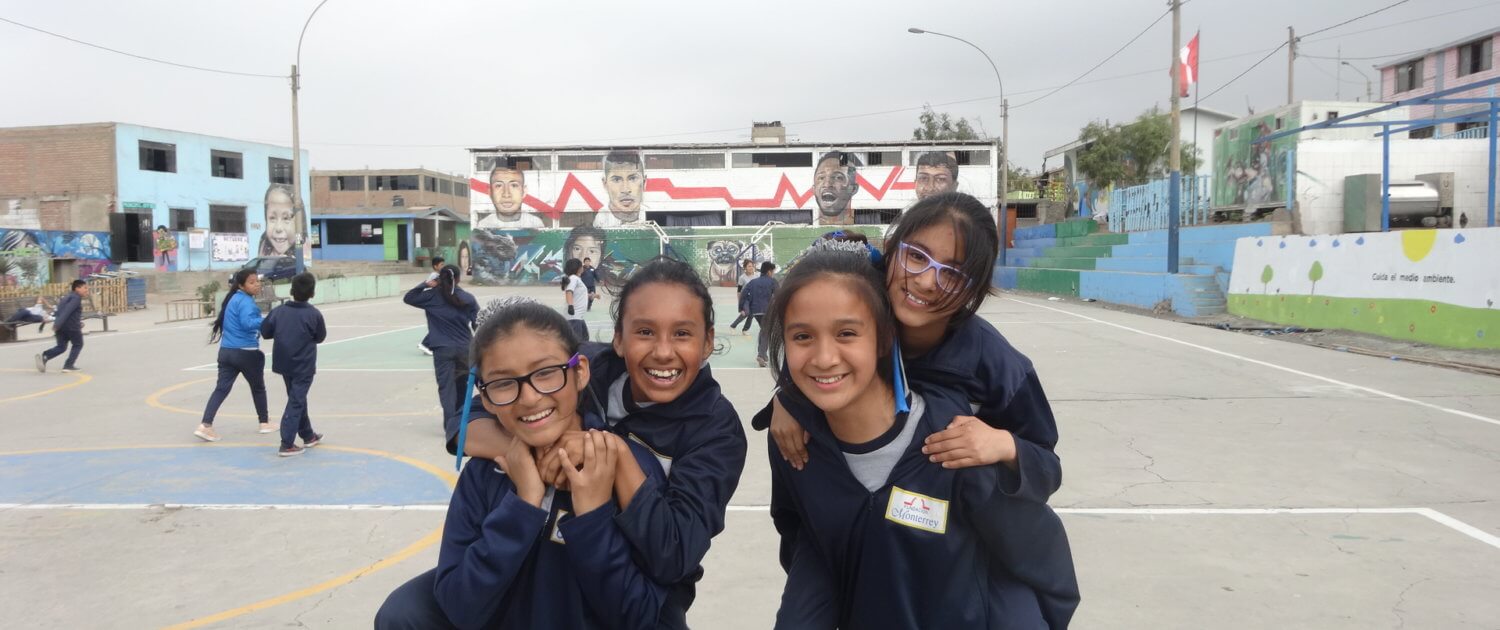
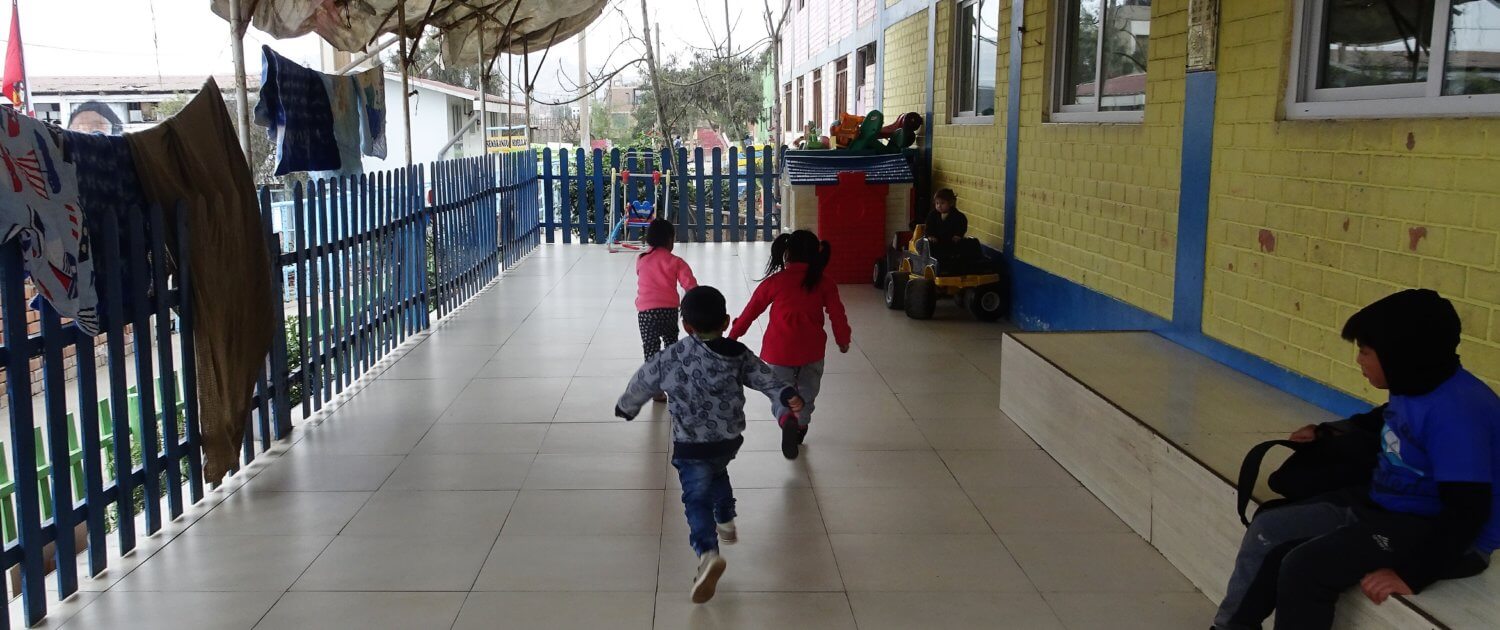
Have you heard of any orphanages that exploit children to get money from volunteers or tourists?
“I think it’s possible. I honestly don’t have much contact with orphanages. I know of a ‘children’s home’ in Cuzco that brings poor children whenever volunteers come. Once the volunteers are gone, the place is empty again. Still, I don’t think that the presence of volunteers creates exploitation. Volunteers can come to help with their service. When this happens, the presence of volunteers does not encourage exploitation.”
How do you protect against such abuses?
“The management team at Sagrada Familia won’t accept children under such circumstances, even for adoptions. There are organizations in Peru and other countries that ask for money for adoptions or for the chance to be with the children. They have websites and all of that. We don’t even have an active website. You won’t find us online even if you were looking for us. If someone comes and wants to donate, we will often take the donations because we need it, but we never ask volunteers to give us any money or make any sort of payment.”
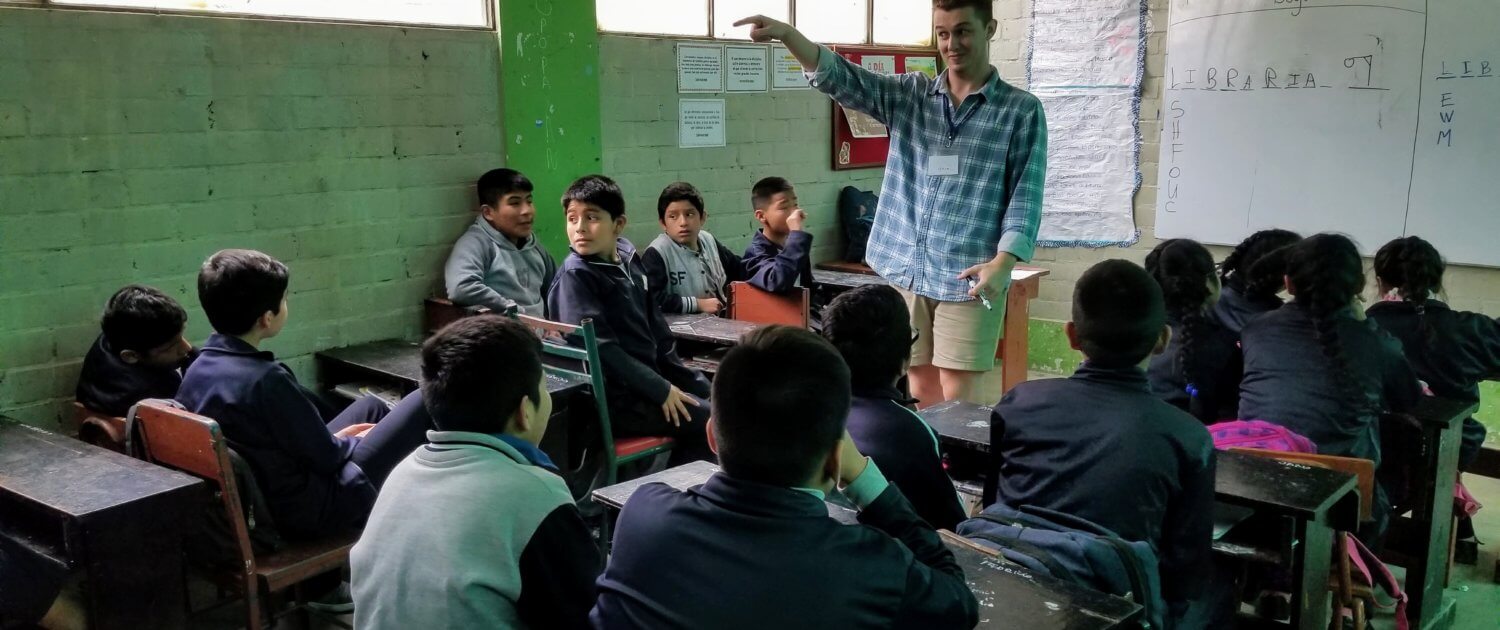
How do you engage volunteers at Sagrada Familia?
“Volunteers come in the morning and work with us throughout the day with education, health services, childcare, labor, and other activities according to the current need. But we never ask for a single cent. We have never asked for any money for anything. Volunteers come to help, not to give us money. They come and show us that it is possible to live in a world of solidarity. Here we don’t even have sponsorship programs.”
Do you think short-term volunteers damage children when they stay only a short time and then go home?
“No. For us as a community, it is normal to have volunteers coming and going and the children understand that well. Children here have no bonding issues with short-term volunteers. They obviously have different levels of attachment, but they understand that volunteers are coming to visit just like an aunt or uncle may come to visit for a short time. What matters is that we keep what they teach us. Every person who comes here is an example for us, even if they stay for a little bit. Time is not a factor that leans the scale negatively. It would be great if they could stay and help us for a year. But in a short time, it’s possible to do much good by sharing the empathy they can have with a child. It’s more a matter of quality of time than quantity of time. In that regard, a volunteer who comes for a week can be as valuable as one who comes for a year.”
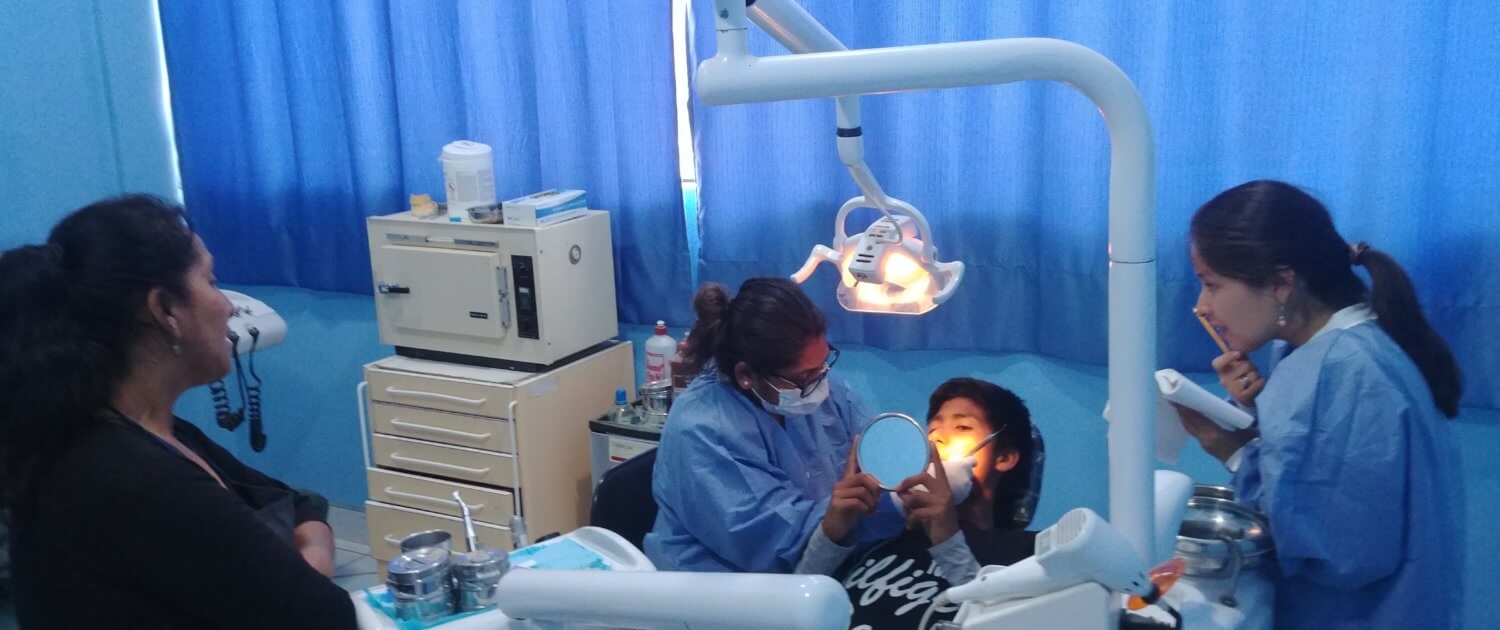
How have volunteers been important in the support of your programs?
“I must first point out that volunteers of all ages are like a mirror where we can look at ourselves. They show us that we can stand in solidarity at any stage in life. They teach us tolerance, education, respect, sharing, etc. The importance of volunteers is seen in each child’s life process. A child who engages with volunteers will not reject society. They become tolerant and enlightened. Many people outside Peru do not understand that here there are many socioeconomic and ethnic differences. And there have been many radical groups who have taken advantage of this. But when the children have interacted with volunteers from other cultures, they don’t have resentment towards white people or Americans or people of wealth. Here more than 50% of our children have gone to college, and about 40% have graduated college. They would not be able to do this if they had not seen examples of others who have graduated college. They can’t just look at me; they need to look at many more examples besides me and their tutors here to be inspired and encouraged.”
“A child who engages with volunteers will not reject society. They become tolerant and enlightened.”
Miguel Rodríguez, Sagrada Familia Founder
Do volunteers take the job a local person can do?
“Not at all. They join us. If they come to teach English, they come to add to or practice what our teachers are working on. For us, a volunteer can never take a job from our staff. When we didn’t have volunteers, we used to show videos of people volunteering so that the children would see that that there can be solidarity around the world. If we had no volunteers coming to our program, it would be a tough blow for us. Still, we would keep on working, but it would be really tough.”
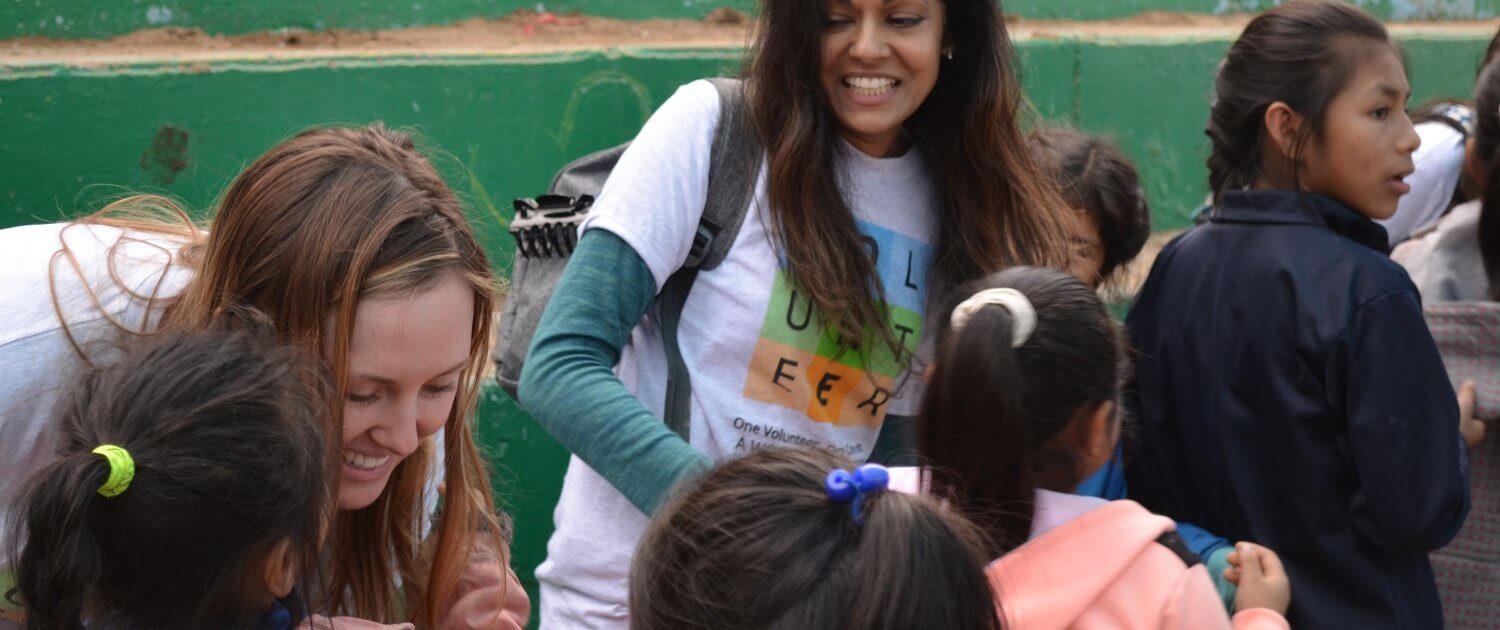
Why not tell Americans to just send just money instead of volunteering?
“Because it would be absurd. For us, their presence is what’s most important. Of course we need money, but we want to see volunteers here. The children now have in their minds volunteers of all ages coming. How can they understand the concept of solidarity if they don’t see people next to them helping them? If people were just to send money, it would be too impersonal; it would be a business.”
The United Nations’ Convention on the Rights of the Child declares that every child has the right to grow up in a family environment, and that institutional care should be a temporary “last resort” for the “shortest possible duration.” How do you respond to that?
“Perfect, I agree. The problem is that those lines were probably written from an office. Real life here is different. It’s easy to judge from a desk. What is hard is to step into the shoes of those who live these realities and actually do something to help them. Now with COVID-19 I’m in lockdown with everyone. The government has not helped us at all. When there is no chance of finding a family (as the government does not allow it or facilitate it), then you must take them in. If their families cared for them, of course they would be better off living with them. Sadly, their families abandoned them and do not want to have their children with them. We are trying to establish the environment of a family. We want children’s homes to stop existing. But there are children who need them.”
“It’s easy to judge from a desk. What is hard is to step into the shoes of those who live these realities and actually do something to help them.”
Miguel Rodríguez, Sagrada Familia founder and director
“We are always trying to have the children living with a family. But sometimes families can’t even provide food or education. And we must guarantee education up to college, otherwise the work would not make much sense. This statement has truth, but was made in an office. We must try to have the single mom or dad care for their children. But if this cannot happen, the children still have to have a surrogate family that guarantees education. That’s what we strive to achieve at Sagrada Familia.”
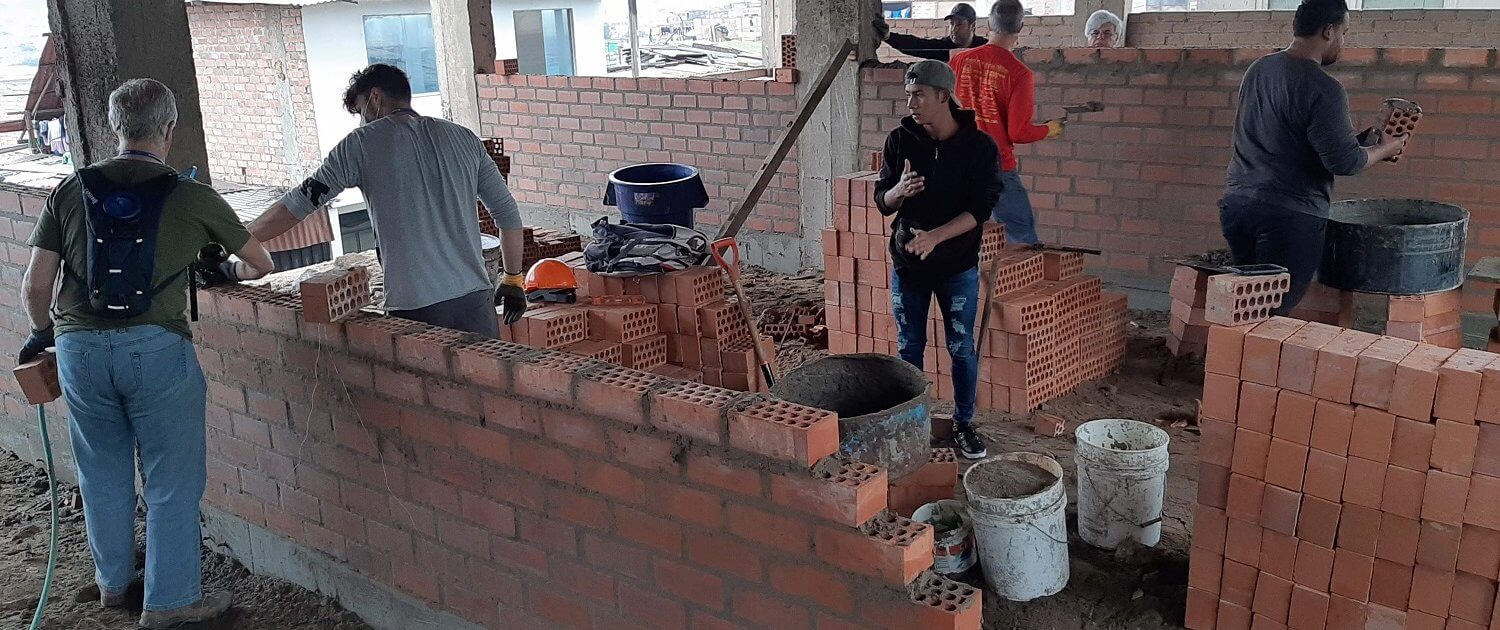
Global Volunteers CEO and Co-Founder Bud Philbrook says it’s “irresponsible” to use a broad brush and condemn all orphanages because not all parents are able to feed their kids and ensure their health care and education.
“He is completely right. Broad [generalizations] are wrong. For instance, I couldn’t say that all Germans were murderers back in the 40’s. Einstein and Bonhoeffer were Germans too. There must be children’s homes or orphanages that abuse and exploit children. But not all [or even most] institutions are like that. I see the staff of Sagrada Familia working tirelessly for the children, just as we have been working for 31 years. We have defects and we are still learning, but we try to provide a family for the children. It would be irresponsible to discredit institutions that for hundreds of years have cared for neglected children around the world. I was the product of a children’s home as well. And I am happy. I am a professional, and I am happy. What would have happened if I would have not been picked up by priests when I was a boy? How many Albert Einsteins have we lost because there was not a place that provided care for them when they were young? We must evaluate institutions by their results. Do children grow up with education and emotional maturity? NGOs should verify that institutions are real and adequate for children. They can do that by constantly observing from the ground.”
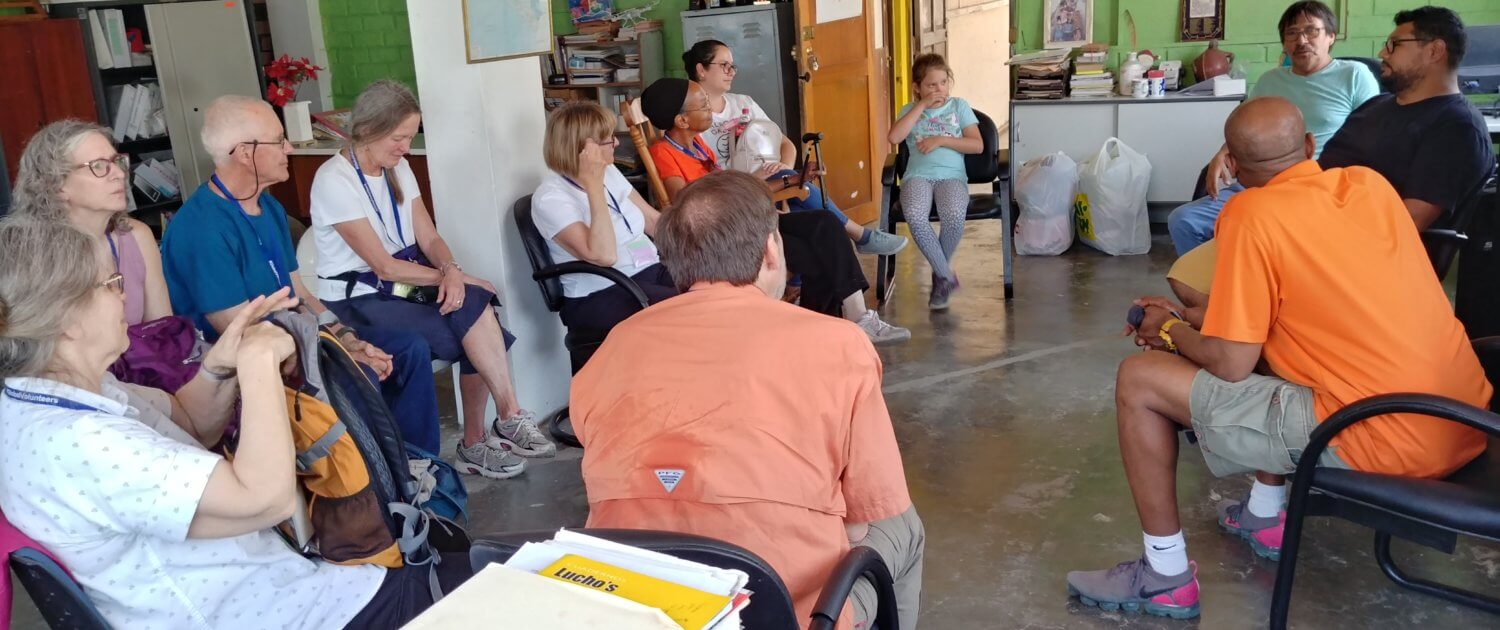
Can you give an example of where a child couldn’t stay in a family situation, and how Sagrada Familia improved their life?
“I can give hundreds of examples. For instance, Loidi’s mother has 5 children with 5 different men. She has even been on TV seeking money from a man who allegedly was the father of one of her children. They did a DNA test, and the results were negative. Then the mother said she had forgotten who the child belonged to. We took Loidi in. She is now on her 3rd year of college. Through all, volunteers helped as role models to Loidi and our other children. Also, when there are volunteers with certain expertise, like doctors or psychologists, then we want them to help us provide a healthy family environment for the children.”
“We also have to teach children about values. Our [politicians] have been corrupted. At the market, the sellers lie. Cheating has become an institution. And how do we teach students not to lie, cheat, and steal? This is a problem caused by an education that does not teach values. The problem of corruption is in our hearts, and we need education and the right environment to fight against it. Also, the educational system is designed to compete and not to share. The idea should be to learn together and not just compete. If a country is failing, its educational system has failed. At Sagrada Familia, we teach values to the kids. We can be millionaire engineers, but of what use is that if we abuse others? We are different. We also take into account religious education to deal with the problems in our hearts.”
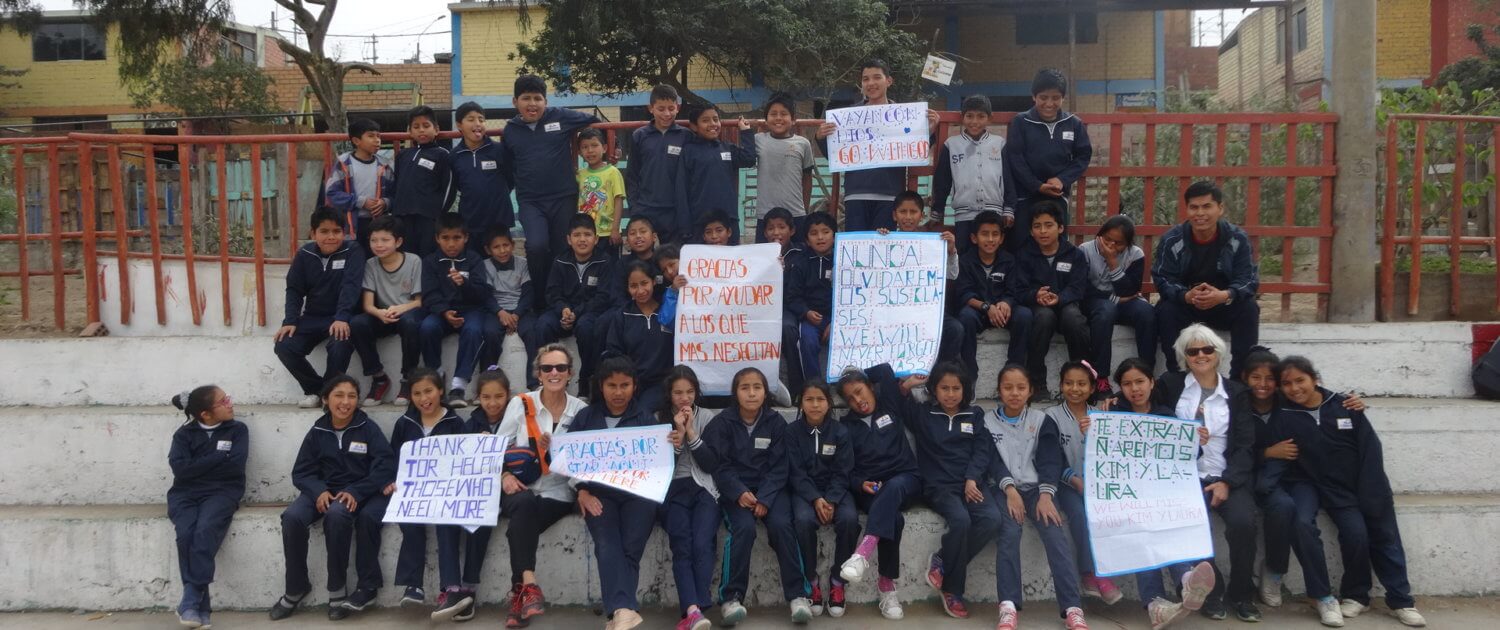
Does the Peruvian government have policies about volunteers coming to work with you?
“I don’t think they even care. Government officials tend to care more about how to make money. They don’t really care about us. The government should help provide a better education, but they don’t. Here, 80% of couples have other partners, and they then neglect the children who result. The [competency] level of basic public education teachers here is incredibly low. And this is clearly seen in college. A high school graduate from a public school has to prepare two years on average before applying to college. All of Peru’s presidents in our time have come to visit Sagrada Familia. They come, take the picture, and do nothing for us. Then they end up going to jail. This is our reality.”
In providing community-based development assistance, Global Volunteers is committed to offering ethical volunteering opportunities defined by local leaders, promoting mutual understanding and respect, and providing skills and abilities that are specifically requested by local people. Learn more about our Philosophy of Service here.

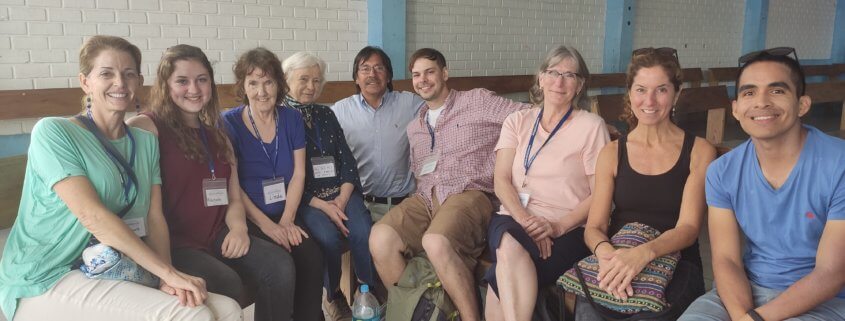 Global Volunteers 2020
Global Volunteers 2020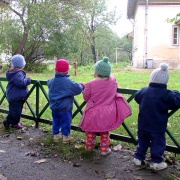
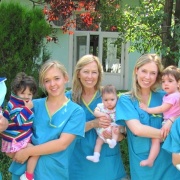

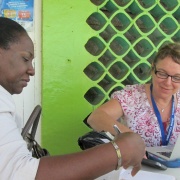
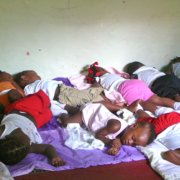
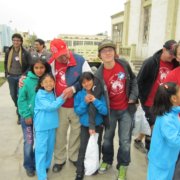

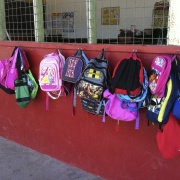


Leave a Reply
Want to join the discussion?Feel free to contribute!